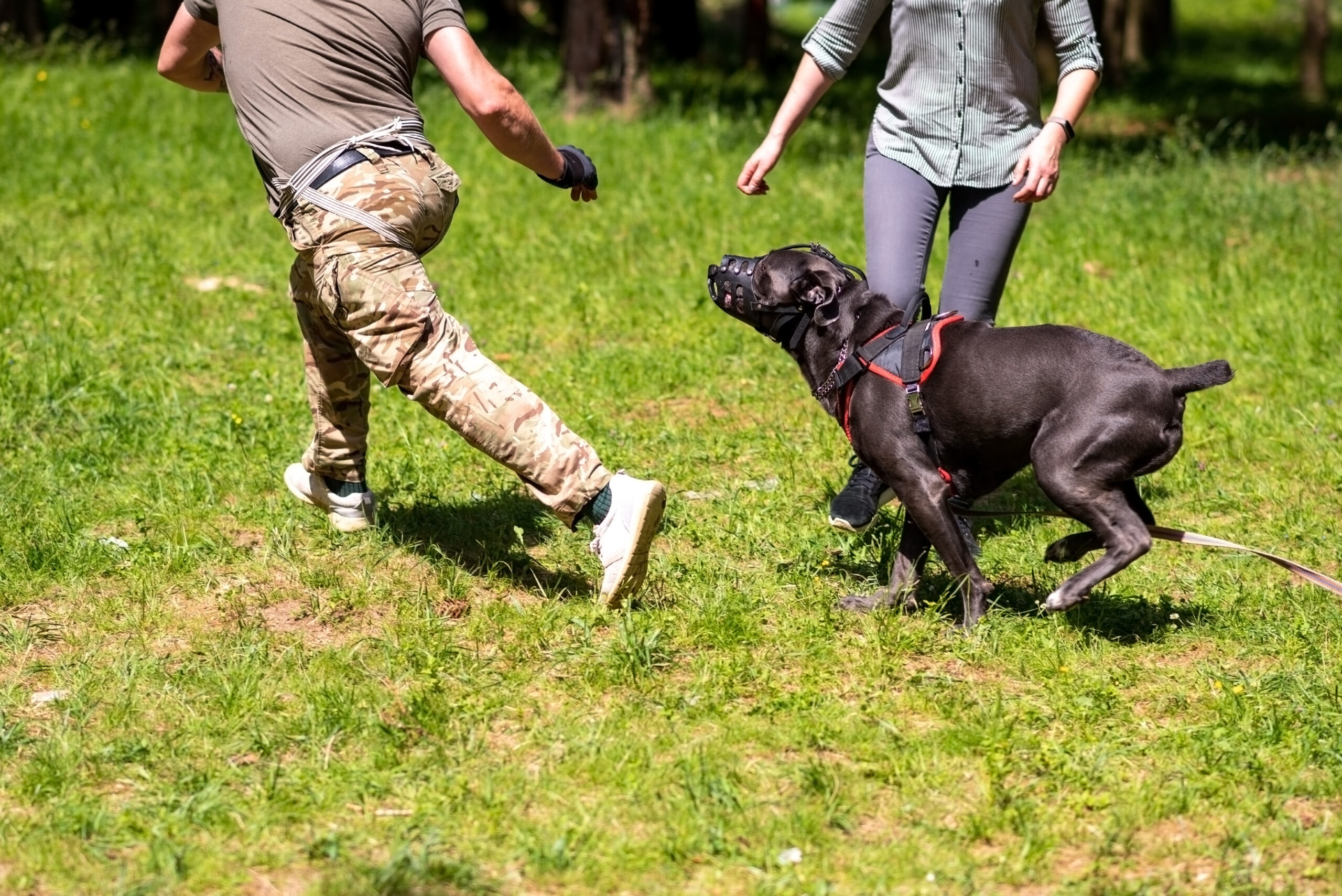Did You Provoke the Dog? What Counts as Dog Bite Provocation
Dogs are often considered loyal companions, offering emotional support, protection, and a strong bond of friendship. But even the calmest and most well-behaved dogs can behave aggressively when they feel threatened or frightened. When a dog bite happens, determining who is legally responsible isn’t always simple. One of the most important questions in any dog bite case is whether the person who was bitten did something to provoke the dog.
At Mark A. Wolin & Associates, we’ve handled a wide range of dog bite cases. We know just how traumatic and painful these incidents can be—physically, emotionally, and financially. One key factor that can affect the outcome of a claim is dog bite provocation. If the victim’s actions are seen as provoking the dog, it could limit or even block their right to compensation. Understanding what is legally considered provocation is essential when pursuing a dog bite injury claim.
When Does Behavior Count as Dog Bite Provocation?
Dogs are naturally protective of themselves and their territory. When faced with situations that cause fear or discomfort, they rely on instinctual responses to defend themselves. Unlike humans, dogs communicate their unease through body language and behavior, which can escalate if ignored or misunderstood. Dog bite provocation occurs when a person’s actions inadvertently or deliberately cause a dog to feel threatened, stressed, or cornered. Recognizing these triggers is important because they often lead to aggressive reactions, including biting. Understanding what behaviors provoke a dog helps clarify responsibility in dog bite incidents and supports safer interactions with pets. The following behaviors are commonly considered provoking:
- Hitting or kicking the dog
- Pulling on its ears, tail, or fur
- Cornering or trapping the dog
- Stepping on the dog’s tail or limbs
- Startling the dog while it is eating or sleeping
Each of these actions can trigger a fight-or-flight response in dogs. If the dog cannot escape, it may bite to protect itself.
How Provocation Affects Dog Bite Liability
Many jurisdictions follow strict liability laws for dog bites. Under these laws, dog owners are generally responsible when their dogs bite someone, regardless of the dog’s past behavior or the owner’s knowledge of any aggressive tendencies. However, if the dog owner can prove that the victim provoked the dog, their liability can be significantly reduced or even eliminated.
The burden of proving dog bite provocation lies with the dog owner. They must present clear evidence that the victim’s actions directly caused the dog to bite. This evidence may include witness statements, video footage, or documented behavior patterns leading up to the incident. Courts also consider factors such as the victim’s age, their experience with dogs, and whether the victim should have reasonably expected their actions to provoke an aggressive response. These considerations help determine who is ultimately liable for the injuries sustained.
Unintentional Dog Bite Provocation: Still a Legal Factor
Dog bite provocation isn’t always intentional; sometimes, a person may unknowingly trigger a dog’s defensive reaction. Dogs are highly sensitive to sudden movements, unexpected touches, or invading their personal space, especially when they feel vulnerable. Even accidental actions can be seen as provoking a dog, potentially affecting liability in a dog bite case. Understanding these subtle triggers helps clarify why some incidents happen and who may bear responsibility. Recognizing unintentional provocation is crucial for both dog owners and victims in navigating legal claims related to dog bites. Below are common examples of such unintentional provocations:
- Accidentally stepping on the dog’s tail
- Making sudden gestures near a sleeping dog
- Approaching too quickly while the dog is with its food or toys
Our legal team at Mark A. Wolin & Associates knows how to investigate these subtle nuances and argue your case effectively.
Protective Instincts: When Dogs Defend Their Owners
Dogs have an innate drive to protect the people they view as part of their “pack.” When a dog perceives that its owner is in danger—even if the threat is only apparent, not real—it may act out defensively. This protective instinct is a common reason behind dog bites, especially in situations involving raised voices, physical altercations, or sudden movements near the dog’s owner.
For example, consider a heated domestic argument. If one person steps aggressively toward the other, a nearby dog may interpret the gesture as a threat and bite the approaching individual. In such cases, the dog’s actions might be seen as defensive rather than aggressive. Courts often take this instinct into account when determining liability, especially if the dog has no history of unprovoked violence.
However, proving that a dog was simply being protective—not vicious—requires more than just assumptions. It involves a careful review of the incident, including the dog’s behavioral history, the setting, and testimonies from witnesses. These factors help determine whether the dog was responding to an actual threat or acting out due to poor training or an overly aggressive nature.
Actions That Are Not Considered Provoking
Not every interaction with a dog leads to provocation. Many everyday actions are completely normal and should not trigger aggression. Understanding what behaviors are considered non-threatening helps clarify when a dog bite is truly unprovoked. These typical, harmless interactions often include simple acts like walking past a dog, speaking to its owner, or gently petting the dog with permission. When a dog bites despite these peaceful behaviors, it may indicate poor training or an aggressive nature. Recognizing these distinctions is essential for anyone seeking to hold a dog owner accountable for injuries caused by their pet These actions are typically seen as non-threatening:
- Walking near a dog
- Petting a dog gently with the owner’s permission
- Speaking to the dog’s owner
- Feeding the dog with the owner’s consent
- Helping to move an injured dog
- Playing calmly with a dog known to be friendly
If a dog bites during one of these situations, it may be a sign that the dog was poorly trained or has an aggressive temperament. This can strengthen your personal injury claim. Our legal experts are prepared to gather evidence that shows the dog owner failed to prevent a foreseeable attack.
Children and Dog Provocation
Children are especially vulnerable in dog bite cases. They often don’t understand boundaries or how to interact safely with animals. Courts usually hold dog owners to a higher standard when a child is involved.
For example, if a child unknowingly pulls on a dog’s tail, courts may decide that the child couldn’t reasonably understand their actions. In such cases, the owner may still be held liable, especially if the dog was known to be intolerant of children.
We handle these sensitive cases with care, always prioritizing the well-being of the injured child and their family. If your child was bitten, contact Mark A. Wolin & Associates for a free consultation.
Can Dog Bite Provocation Eliminate Compensation Completely?
Not always—but it can reduce your chances of receiving full compensation.
In many states, including Texas and Florida, the concept of comparative negligence applies. This means if you’re found partially responsible for provoking a dog, your compensation could be reduced based on your share of fault. For example, if you’re 30% at fault, your damages may be reduced by that amount.
However, there’s a limit. In some jurisdictions, if you’re found more than 50% at fault, you may be barred from receiving any compensation. Actions such as teasing, hitting, or startling a dog can all be interpreted as provocation, depending on the situation and local laws.
That’s why it’s so important to have an experienced attorney on your side. At Mark A. Wolin & Associates, we analyze the full context of your case to show that your actions didn’t justify the dog’s aggression—protecting your right to fair compensation.
Proving or Disproving Dog Bite Provocation: Evidence Matters
In dog bite cases, evidence plays a crucial role in determining whether dog bite provocation occurred. Clear documentation and credible testimony can make or break your claim. By collecting and analyzing every detail, our legal team ensures that your side of the story is fully supported and legally compelling in court. Our legal team gathers:
- Witness statements
- Medical records
- Photos of the injuries
- Surveillance or smartphone footage
- Expert testimony from animal behaviorists
All of this helps build a strong case, either to defend against claims of dog bite provocation or to assert that the dog owner’s negligence was the main cause.
Injured in a Dog Bite Incident? Let Mark A. Wolin & Associates Fight for You
If you or a loved one has been bitten by a dog—especially in a situation where provocation is disputed—you need a legal team that understands both the law and the emotions involved. At Mark A. Wolin & Associates, we specialize in personal injury cases and know how to handle the complexities surrounding dog bite liability.
From proving the bite was unprovoked to minimizing your share of fault, we’re here to secure the justice and compensation you deserve. Your recovery starts with a free consultation and a team committed to your case every step of the way.
Office Address:
11098 Biscayne Blvd., Suite 401-2
Miami, FL 33161
Email Address:
mark@wolinlawfirm.com
Phone Number:
Office: (305) 891-3336
Fax: (305) 891-3317
Reach out today—because protecting your rights starts now.




